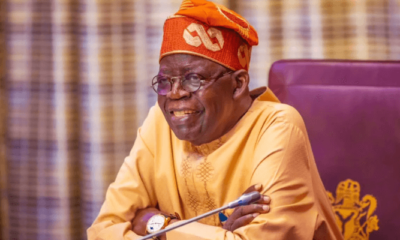Legal Issues
Judicial Authorities Governing The Settlement Of Properties Among Parties To A Divorce Case -By Oyetola Muyiwa Atoyebi & Ebekehile Love Elizabeth
The case of Eke v. Eke (1993) 1 NWLR (Pt. 268) 506 highlighted the importance of considering the contributions of the parties during the marriage in the division of properties. The Court emphasized that non-financial contributions, such as homemaking and child-rearing, should be recognized and taken into account when determining the distribution of assets.

INTRODUCTION
In Nigeria, the settlement of properties in a divorce case is governed by various laws, including the Matrimonial Causes Act (MCA), State laws on marriage and divorce, and the Nigerian Constitution. These laws provide guidelines on how matrimonial assets are to be distributed between spouses upon divorce.
When it comes to the division of properties in a divorce case, the Court’s objective is to ensure fairness and equity between the parties involved.
Under the MCA, the Court has the power to make orders regarding the division and distribution of properties acquired during the marriage. Section 70 of the Act empowers the Court to take into account various factors when deciding on the division of properties. These factors include:
- The income, earning capacity, property, and other financial resources of each party.
- The financial needs, obligations, and responsibilities that each party has or is likely to have in the foreseeable future.
- The standard of living enjoyed by the family before the breakdown of the marriage.
- The age of each party and the duration of the marriage.
- Any physical or mental disability of either of the parties.
- The contributions made by each party to the welfare of the family, including any contribution made by looking after the home or caring for the family.
- The conduct of each party, if the Court considers it relevant.
These factors allow the Court to consider the unique circumstances of each case and make a fair and equitable distribution of properties. There are several judicial authorities and case laws that have shaped the settlement of properties in divorce cases in Nigeria.
One such case is the landmark decision of Oyeniran v. Oyeniran (1976) 9 & 10 SC 31, where the Supreme Court held that the Court has the power to order the sale of property and the division of the proceeds among the parties. This case established the Court’s authority to liquidate assets if necessary to achieve a fair settlement.
Another important case is Akomolafe v. Akomolafe (1990) 3 NWLR (Pt. 137) 1, where the Court emphasized the need for a just and equitable distribution of properties. The Court further stated that the principle of equal sharing of assets should not be applied mechanically but rather with regard to the specific circumstances of each case.
Furthermore, the case of Eke v. Eke (1993) 1 NWLR (Pt. 268) 506 highlighted the importance of considering the contributions of the parties during the marriage in the division of properties. The Court emphasized that non-financial contributions, such as homemaking and child-rearing, should be recognized and taken into account when determining the distribution of assets.
It is my submission that Nigerian Courts have provided guidance on property settlement in divorce cases because, in Akindole v. Akindole (2012) 6 NWLR (Pt. 1299) 363, the Court of Appeal held that the Court has the power to redistribute properties acquired during the marriage, taking into account the factors mentioned in the MCA. The Court emphasized the need for fairness and stated that the aim is to ensure that both parties are adequately provided for after the divorce.
Another noteworthy case in the distribution of properties in a divorce proceeding is Okotie-Eboh v. Okotie-Eboh (1992) 4 NWLR (Pt. 234) 1, where the Supreme Court held that the primary consideration in the division of properties is the welfare and interest of the children, followed by the interest of the parties. The Court stressed that its objective is to ensure a fair distribution that caters to the needs and responsibilities of each party.
In Awe v. Awe (2012) LPELR-20668 (CA), The Court of Appeal emphasized that the Court should adopt a fair and equitable approach when dividing matrimonial assets, considering the circumstances of each case, including the needs and welfare of the children.
In Ukeje v. Ukeje (2014) 11 NWLR (Pt. 1418), In this landmark case, the Supreme Court held that customary law practices that discriminate against women in the distribution of property upon divorce are contrary to the provisions of the Nigerian Constitution and are therefore void.
Lastly, in Okojie v. Okojie (2000) LPELR-1493 (SC), The Supreme Court held that the Court has the power to make orders for the sale of properties acquired during the marriage and the distribution of the proceeds in a just and equitable manner.
CONCLUSION
In conclusion, the settlement of properties among parties in a divorce case in Nigeria is a complex and significant aspect of the divorce process. It involves the fair division of assets and liabilities acquired during the marriage between the spouses. In Nigeria, the legal framework for property settlement in divorce cases is primarily governed by the Matrimonial Causes Act, which provides guidelines for the equitable distribution of assets and ensures a just resolution. However, the specific outcome of property settlement depends on various factors,such as the length of the marriage, the financial contributions of each spouse, and the existence of prenuptial agreements.
SNIPPET
The case of Eke v. Eke (1993) 1 NWLR (Pt. 268) 506 highlighted the importance of considering the contributions of the parties during the marriage in the division of properties. The Court emphasized that non-financial contributions, such as homemaking and child-rearing, should be recognized and taken into account when determining the distribution of assets.
Key terms: marriage, divorce, analysis of cases of divorce.
AUTHOR: Oyetola Muyiwa Atoyebi, SAN
Mr. Oyetola Muyiwa Atoyebi, SAN is the Managing Partner of O. M. Atoyebi, S.A.N & Partners (OMAPLEX Law Firm).
Mr. Atoyebi has expertise in and vast knowledge of Litigation Practice and this has seen him advise and represent his vast clientele in a myriad of high-level transactions. He holds the honour of being the youngest lawyer in Nigeria’s history to be conferred with the rank of Senior Advocate of Nigeria.
He can be reached at atoyebi@omaplex.com.ng
CONTRIBUTOR: Ebekehile Love Elizabeth
Loveis a member of the Corporate Team at OMAPLEX Law Firm. She also holds commendable legal expertiseFamily Law.
She can be reached at love.ebekehile@omaplex.com.ng









